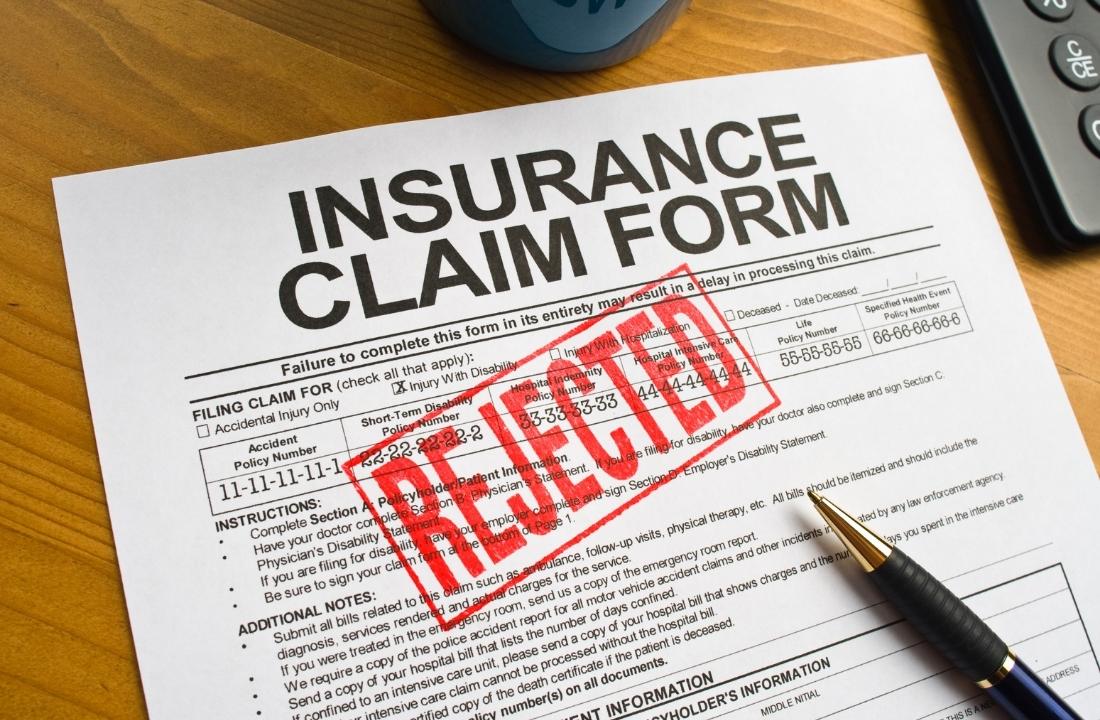5 Tips for Dealing with a Denied Health Insurance Claim

If you’ve ever submitted a health insurance claim and been denied, you know how frustrating it can be, especially if you don’t have the money to pay out of pocket for your medical care. We all hope that our claims will be covered with no issue—but sometimes, it simply doesn’t work out that way.
In order to ensure that your denied claim doesn’t end up costing you more than it should, keep these tips in mind
1) Don’t panic
If you’ve recently had your health insurance claim denied, it’s important to remain calm. Many common reasons why claims are denied—such as billing issues or typos—are easy to fix if you know what they are and can be resolved relatively quickly.
If there’s an issue that isn’t on your end, reach out to your insurance provider right away to see how they can help you avoid similar issues in the future. Most providers want their customers to feel satisfied, and will try their best to do so.
2) Get your paperwork in order
If your claim is denied, talk to your health insurance provider about why it was rejected. Make sure you have all of your paperwork in order and that you’ve completed all of their requirements. Go through each point on their checklist to make sure you didn’t miss anything, such as getting prior approval from them or providing any necessary diagnostic tests that may have been needed.
You may need to get letters from your doctors if they don’t want to help directly or won’t help over the phone. Your insurance advisor can also be helpful in explaining what needs to be done when dealing with claims issues; they often see these denials frequently and will know how best to tackle them.
3) Try again
If your claim is denied, don’t give up! Many consumers think it’s just easier to pay out of pocket and move on. They don’t realize that they can appeal an insurance company decision, which could turn around their denied claim.
If you have trouble paying out of pocket, your doctor may be able to recommend an affordable treatment plan while you wait to hear back from your insurance company. And remember: Don’t rely on health insurance companies to have accurate information about their own plans; read their rules and guides so you can educate yourself about how filing a health insurance claim should work in your case. It is therefore always better to talk to your insurance advisor before filing the claim.
The more you know about your rights as an insured person, the more comfortable you will feel if something goes wrong when filing your health insurance claim.
4) Call the insurance helpline
Even if you believe that your insurance company denied your claim unfairly, it’s important to check in with them first. This will give you an idea of whether or not there was simply an error made during processing.
Give them a call and ask about getting reimbursed; at least then you’ll know where things stand.
5) Speak to your health insurance advisor
Your health insurance advisor is a licensed expert who works for you and only you. Do not hesitate to contact him or her if your claim is denied.
S/He has plenty of market knowledge to guide you the right way and can also point out errors (if any) on your end so your claim gets sorted as soon as possible.
Looking for a health insurance plan? Talk to our Trust Life advisors. Also, if you are shopping around for health insurance, make sure you read about the following plans – the first of their kinds available in the market today.
